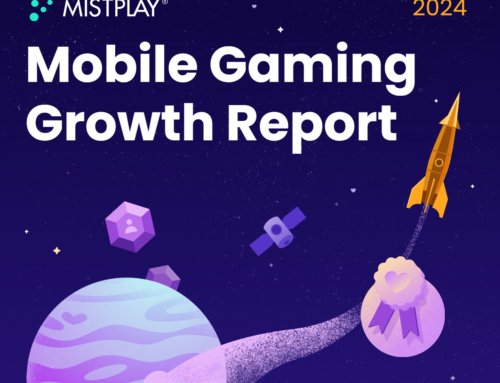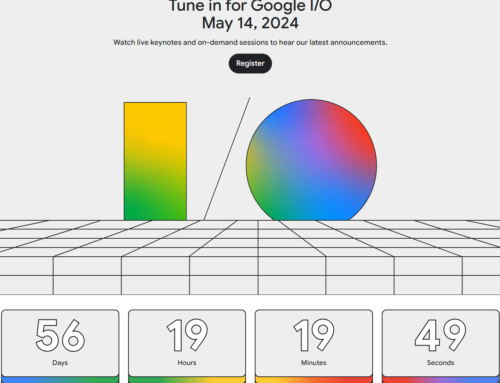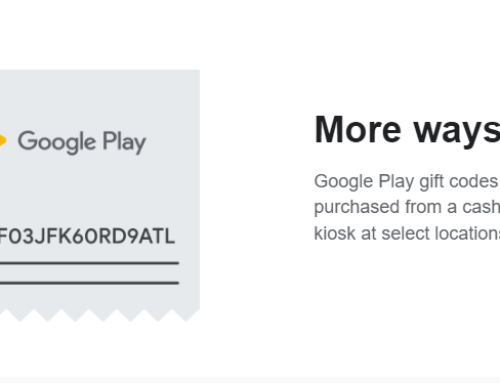Update: Since most devs want to use the ASO tools mainly for keyword discovery, I created an in-depth article on how to do keyword research with ASO tools here: Free Google Play Keyword tools for app optimization.
What’s App Store Optimization (ASO)?
Google revealed that more than 50% of the Google Play visitors find apps by using the internal search function. It makes sense, just think how many times you’ve went to Google Play and searched for a particular keyword you were interested in, such as “angry brids”, “temple rn” or “emoiji keyboard”. Because the next thing that makes sense is that a lot of those searches contain typos. Luckily Google Play is smart enough to recognize and correct those.
Are you an app developer? I can help you promote your app/game by submitting app review requests to 140+ Android review sites, details here: 140+ App review requests submission
The point is this, you can optimize your app’s title and its description (mainly) to increase your chances in being found through a search result in Google Play. Some of the rules that apply to the old-school SEO for websites also apply for Google Play Store Optimization, so if you want to rank higher in search results you can do some adjustments and try to see what happens.
iOS has its own appstore and this optimization process was called ASO (App Store Optimization) so I’ll go ahead and baptize the optimization process for Google Play Store as GPSO. The first step in this process is deciding if you need it or not. [highlight]The rule is very simple, if your app sucks then there’s no need to optimize anything[/highlight], just move on and create your next app, your time is better spent this way. How do you know if your app sucks? If it has poor graphics, a complicated use scenario, crashes on lots of devices, it’s useless (i.e. a clone of another popular product) then you can pretty much move on. Or just share it with a few honest friends and they’ll tell you.
If your app doesn’t suck then it’s ok to invest some time into optimizing it a bit. The most important part is knowing what to optimize for, meaning the keyword. You want a keyword that has the most searches while it has the least competition (i.e. very few apps that target it). You can do some basic keyword research just by looking at your competitors, using Google Play’s auto-complete keyword suggestions and finally using a 3rd party service that gives you more flexibility in terms of ASO. For this purpose I compared 10 services that provide to some level tools to help you with the optimization process: [highlight]TheTool.io, Sensor Tower, SearchMan, Appnique, Straply (defunct now), Appcode.es, MobiledevHQ, Mopapp, MetricsCat, Appannie and Appfigures[/highlight].
As mentioned earlier keyword research is the most important part of the optimization so in choosing these services I took into account if they offer keyword tools or not, but also considered other features, which I’ll describe briefly below:
- Price. Obviously this is very important as most developers don’t have a lot of fund lying around like big players have. That’s why I also mention in the comparison table below if they offer or not a free trial/tier.
- System. Not all work with the 2 major markets so you’ll see which ones work with iOS apps and Android apps too.
- Keyword Rankings. This basically would give a report on how your app ranks for a particular keyword over a period of time.
- Keyword Research. Helps you delve deeper into a particular keyword to see if you can’t actually find a better alternative. Good tools also include a difficulty ranking (how much competition it is already for that keyword).
- Keyword Suggestions. Think of the suggestions that Google Play offers when you start typing something.
- Keyword Spy. What keywords are your competitors using.
- Category Rankings. A top for the apps in a particular category.
- Track Competitors. Spy your competitors and their ranking.
- Install reports. How many users actually install and use your app (app analytics part).
- Download reports. How many downloads your app gets (and more important your competitors, think app intelligence).
- Review Analysis. Analyze the reviews and ratings your apps gets over time.
- Email reports. Receive reports via email with your ranking.
- Internalization. Is the data only for US or for more markets?
- API access. An API is good for advanced developers that want to integrate the reports.
- Visibility score. A type of proprietary score that your app would get upon analysis from a ranking point of view.
- Export data. Possibility to export the data and use it locally.
- 3rd party integration. Integrations with Google Ad Mob, Flurry, etc.
- Pre-launch analysis. Can you do some analysis for your app before actually taking it live? Basic, but somehow useful.
- Algorithm sonar. Did the Google Play Store search algorithm changed recently?
- Accuracy. Everyone can say they offer keyword research, but how accurate is that?
If you see a mistake in the table below (hey, I’m human after all) then be sure and leave your comment, I’ll obviously correct it. The order of the sites in the table below is absolutely random so the first is not the best nor the last the worst.
Comparison table for app optimization tools
| * | TheTool.io | Sensor Tower | SearchMan | Appnique | Appcode.es | MobiledevHQ | Mopapp | MetricsCat | Appannie | Appfigures |
|---|---|---|---|---|---|---|---|---|---|---|
| Price/month | Free | $30 | $70 | $200 | $79 | $150 | Enterprise | $25/app/month | $150/month | Enterprise | $15 | $350 | Enterprise ($$$) | $200 | Enterprise | $15 | $76 | $400 | Free | Enterprise ($$$) | $9 | $200 |
| Free / Free trial | Yes, free for 2 apps (req. CC) | Yes – limited to one app (requires CC for trial | Yes – limited to 50 pageviews per app | Yes – free for one app | Yes – demo account and no login required | Yes – limited to 3 apps (free for life) | Yes – free for devs | Yes (free for 1 app and 5 keywords) | Yes (free with limited features) | Yes – free for 5 apps |
| iOS support | Yes | Yes | Yes | Yes | Yes | Yes | Yes | Yes | Yes | Yes |
| Android support | Yes | Yes | Yes | Yes | No | Yes | Yes | Yes | Yes | Yes |
| Keyword Rankings | Yes | Yes | Yes | Yes | Yes | Yes | Yes | Yes | Yes | Yes |
| Keyword Research | No | Yes | Yes | No | No | Yes | No | No | Yes | No |
| Keyword Suggestions | Yes | Yes | Yes | Yes | Yes | Yes | No | Yes | Yes | No |
| Keyword Spy | Yes | Yes | Yes | No | Yes | Yes | No | Yes | Yes | No |
| Category Rankings | Yes | Yes | Yes | No | No | Yes | No | No | Yes | Yes |
| Track Competitors | Yes | Yes | Yes | Yes | No | Yes | Yes | Yes | Yes | No |
| Install reports | Yes | Yes | No | Yes | No | Yes | No | No | Yes | Yes |
| Download reports | Yes | Yes | No | Yes | No | Yes | Yes | No | Yes | Yes |
| Rating/Review Analysis | Yes | Yes | No | Yes | No | Yes | No | Yes | Yes | Yes |
| Email reports | Yes | Yes | Yes | Yes | No | Yes | Yes | Yes | Yes | Yes |
| Internalization | Yes | Yes | No (US and Japan only) | No | No | Yes | No | No (US|DE) | Yes | Yes |
| API access | No | Yes | No | No | No | Yes | Yes | No | Yes | Yes |
| Visibility score | No | Yes | Yes | No | No | Yes | No | No | Yes | No |
| Export data | Yes | Yes | Yes | Yes | No | Yes | Yes | Yes | Yes | Yes |
| 3rd Party Integrations | Yes | No | Yes | Yes | No | No | Yes | No | No | No |
| Pre-launch analysis | No | No | No | Yes | No | No | No | No | No | No |
| Algorithm sonar | No | No | No | No | No | Yes | No | No | No | No |
| Observations | Free plan allows 2 apps, allows integrations | Basic plan is limited, not all features are accessible | Some pages are too filled with actions and information | Simple, but also not as many tools as others | Limited to its essence (the keyword table) | Most features require upgrade | Most suited for app analytics rather than optimization | Rather basic ASO tools | They acquired Distimo too, plenty of features | More of an app reporting platform |
| Keyword Accuracy | high | high | high | medium | medium | high | – | low | high | – |
Still reading? Good, because I just want to give a bit more details about each.
TheTool.io
Recent addition to the list of ASO tools, TheTool defines itself as a … tool for tracking performance-based ASO. It has a (very) clean interface and simplicity is one of its strongest points. Will allow you to integrate 3rd party reporting from Google Ad Mob, Google/iOS Developer and a few others to have installs, revenue & other type of tracking integrated as well. I share an in-depth article about it here: TheTool.io Review.
Sensor Tower
Sensor Tower is relatively new to the app optimization field as it was founded in 2013 by Alex Malafeev and Oliver Yeh. They have some important app companies using them and the fact they received funding early in the game ($1 million in 2013) helped them become one of the leaders. The demo below is supposed to give more details on what Sensor Tower does, though you’ll have to check their other videos for details:
My thoughts on Sensor Tower? I like their interface, all goes around smoothly and would use their free tier. They’re my second choice. What I don’t like is how they require you to have a Credit Card in order to sign-up for a 14 day “free” trial. I find that misleading but luckily LifeHacker has some tips on how to circumvent that.
SearchMan
SearchMan was founded in 2012 by Niren Hiro and Naoki Shibata (with a team behind formed of ex-Google/Yahoo/Friendster employees) and is one of the big players too. They are specifically focused on app optimization. Here’s a quick overview of the service:
I like how many features they offer and how focused they are on app optimization, however their dashboard design is too cluttered, I’d prefer a more simple approach.
Appnique
Appnique was founded in 2012 by Jai Jaisimha and is right now the first service to offer developers pre-launch analysis. It offers a simple dashboard and I like how everything is organized.
Unfortunately it doesn’t have as many features as the other big players and in my quick tests the keyword suggestions were not as accurate as Sensor/SearchMan/Appannie.
Straply – this is now defunct
Straply was founded by Barry Smith and Adam Weintraub in 2012. The good part about this it’s the fact that you can use it for free, as right now is in beta. The bad part is its accuracy and it doesn’t offer as much features. Couldn’t find a good demo for them though you can use it for free to see for yourself. The web app also lacks that finishing touch, probably because of the Beta tag.
AppCodes
AppCodes was created by Tomasz Kolinko and claims to be the “Swiss Army Knife” of ASO and GPSO, though this lacks some features in comparison to other services. No login required and that’s a big plus, below is a slide presentation with what they offer
MobileDevHQ
MobileDevHQ was founded in 2009 by Ian Sefferman and they claim to be the #1 in app store optimization. That probably justifies why they’re also the most expensive and they tend to be more focused on enterprise solutions (where the good honey is). They have a free forever plan for 3 apps that provides some good basic insight, however most other tools require payment. Here’s a quick overview:
Still, the free tier is good and that’s why it’s on my recommendation list.
Mopapp
Mopapp was launched in 2010 by Federico Sita and Alessandro Rizzoli, is also one of the few to provide support for more exotic app stores (RIM, GetJar). I still don’t get why a company that offers a service whose core is keyword updates and accuracy would display in their footer 2013 for a copyright year, but you cannot argue free as it is free for devs. More of an app analytics solution though, rather than optimization. Here’s a demo for Mopapp:
MetricsCat
MetricsCat was founded in 2013 by Tatiana Aulachynskaya. With affordable prices for indie devs and a cute mascot, MetricsCat is more focused on app analytics and intelligence than it is on app optimizations. No usable demos but you can sign-up for free and see for yourself how it compares with others.
AppAnnie
AppAnnie is my #1 choice for app rankings, analytics and intelligence. Founded in 2010 it quickly became one of the leaders in this market, with over 350k apps using its analytics platform (and they claim to track over 3.5 million apps). They received more than $40 million in funding overall and this allowed them to acquire Distimo, another large competitor. You can see a demo of their service here:
https://www.youtube.com/watch?v=AmWLwWGCwlU
I highly recommend their free tier because it offers compelling and useful data and also because very few can afford the enterprise one.
Appfigures
Appfigures was founded in 2009 by Oz Michaeli and CEO Ariel Michaeli. They mention an impressive list of clients (Capcom, Ebay, Rockstar) but they’re more an app reporting and intelligence service than an app store optimization one. Demo below:
https://www.youtube.com/watch?v=Kha4vQ7AmU4
Conclusion
I’ve tested these tools for several weeks now to be confident when [highlight]I recommend App Annie as my first choice for app store optimization[/highlight]. Everything just clicks with them, they have the most comprehensive data sources (at least they reveal them publicly), a very clean and well organized dashboard plus a price for indie devs you cannot beat, free. But you shouldn’t resume at using it exclusively.
My recommendation for indie devs/studios is not to pay for a tool that monitors app rankings, analytics and helps overall with the optimization. Instead, use the free tiers that App Annie, MobileDevHQ, Sensor Tower and SearchMan offer. Those are enough to be very aware on your next action without having to upgrade to a paid tier. If you’re a large company with dozens of apps to track then yes, upgrade to an enterprise level to get the most out of App Annie, but otherwise your money can be better spent on promoting your apps. With a good copywriter and using these tools you can increase your ranking in the Google Play Store results.




